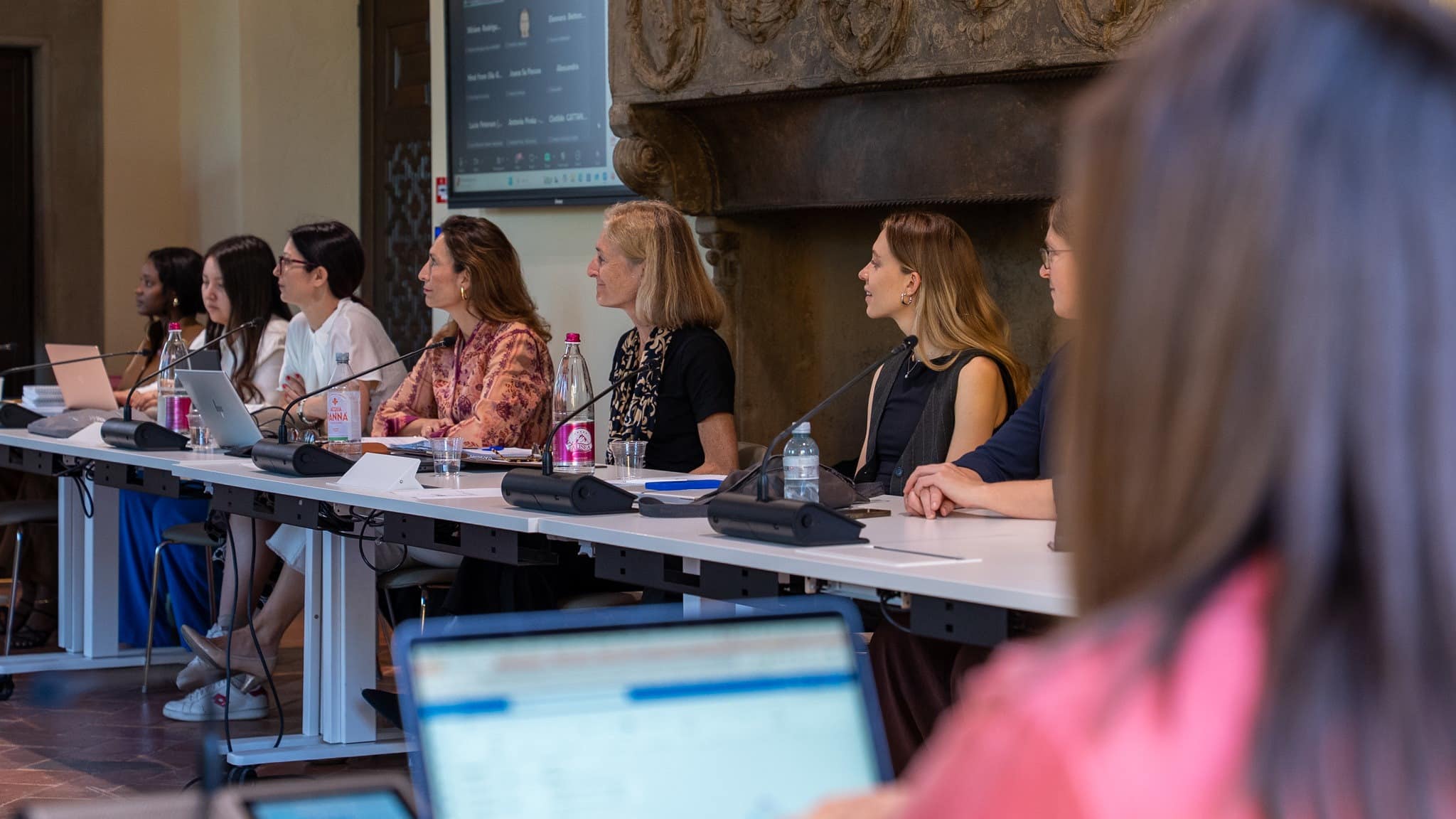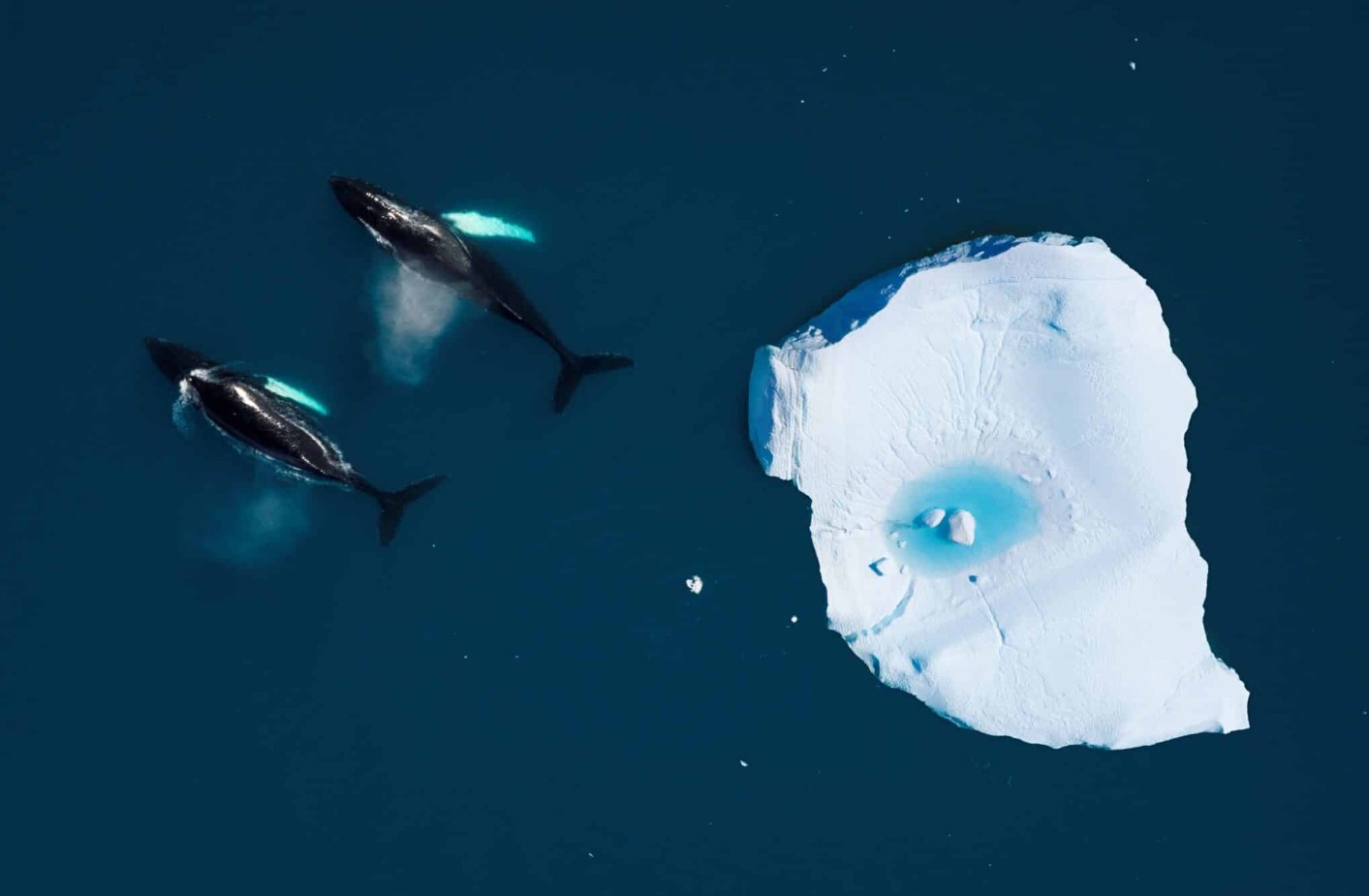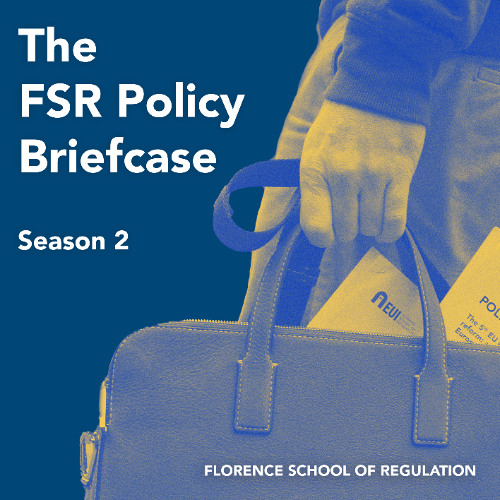FSR Climate Annual Conference 2015
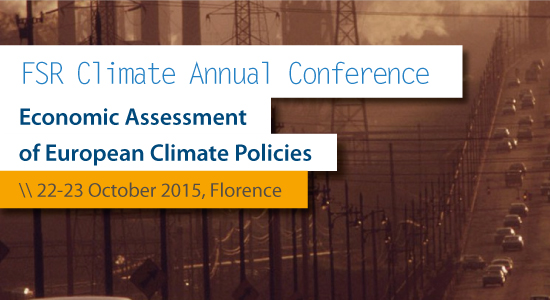
The FSR Climate 2015 Annual Conference focused on the economic assessment of European climate policies.It covered the main climate-related existing policies at EU, national and subnational levels and included the following sessions, each of them with an invited speaker:
- Renewable policies: Mario Ragwitz (Fraunhofer ISI, Germany)
- EU ETS: Claudio Marcantonini (FSR Climate, EUI)
- Carbon/energy taxes: Ian Parry (International Monetary Fund)
- Energy efficiency policies: Massimo Filippini (ETH Zürich, Switzerland)
Martin Weitzman (Harvard University, USA) gave the keynote speech.
As part of the conference a Round Table on the Distribution of Costs of Climate Change Impacts and Policies took place on 22 October, from 17.00-19.00 at the Palazzo Guadagni Strozzi Sacrati (Presidenza Regione Toscana). See the recording of the round table.
Audio Interviews
Papers/Presentations
DAY 1
Plenary presentation: Renewable energy policy Mario Ragwitz, Fraunhofer ISI
Session 1: Renewable energy policy
Ex-post assessment of carbon abatement and revenue effects of wind energy penetration (PAPER) Jan Abrell, Mirjam Kosch (ETH), Sebastian Rausch
Electricity imports from large-scale photovoltaics to Europe: distributional implications for Europe, Middle East and North African regions (PAPER) Birgit Bednar-Friedl, Iris Grossmann, Wolf Grossmann, Stefan Nabernegg (University of Graz), Thomas Schinko
Network transmission versus demand response: what is the impact on renewables? An application to Ireland and France (PAPER) Sean Collins, Paul Deane, Valeria Di Cosmo (Trinity College Dublin)
Session 2: EU ETS
Combining prices and quantities pollution controls under partitioned environmental regulation Jan Abrell (ETH), Sebastian Rausch
Outward foreign direct investments patterns of Italian firms in the EU-ETS Simone Borghesi (University of Siena), Chiara Franco, Giovanni Marin
Installation exit in the EU ETS industrial sector Stefano Verde (EUI), Christoph Graf, Thijs Jong, Claudio Marcantonini
Plenary presentation: The EU ETS: ten years and counting Claudio Marcantonini, FSR Climate, EUI
Session 3: EU ETS
Free allocation and the endowment effect in Cap-and-Trade systems: evidence from the European electricity sector Aleksandar Zaklan (DIW)
Politics matters: regulatory events as catalysts for price formation under cap-and-trade (PAPER) Nicolas Koch (Mercator Research Institute on Global Commons and Climate Change), Godefroy Grosjean, Sabine Fuss, Ottmar Edenhofer
Absolute vs. intensity-based emissions caps for target setting: an obstacle to linking the EU ETS to Chinese national ETS? (PAPER) Yingying Zeng (University of Groningen), Stefan E. Weishaar, Oscar Couwenberg
Searching for carbon leaks in multinational companies (PAPER) Antoine Dechezleprêtre, Caterina Gennaioli, Ralf Martin, Mirabelle Muûls, Thomas Störk (Pompeu Fabra University)
Session 4: Renewable energy policy
On the economics of electricity markets with renewable energies Carsten Helm, Mathias Mier (University of Oldenburg)
The Swiss energy transition: a demand-side perspective (PAPER) Alessandra Motz (Università della Svizzera italiana), Rico Maggi
Keynote speech: Can negotiating a uniform carbon price help to internalize the global warming externality? Martin Weitzman, Harvard University
DAY 2
Plenary presentation: Energy taxation to correct external costs Ian Parry, International Monetary Fund
Session 5: Environmental taxation
A carbon tax and the risk of inequity (PAPER) Emmanuel Combet (CIRED), Frédéric Ghersi, Jean-Charles Hourcade, Camille Thubin
Solving the climate dilemma, an International carbon-price commitment promotes cooperation Peter Cramton (European University Institute, University of Maryland and University of Cologne), David MacKay, Axel Ockenfels, Steven Stoft:
“Global Carbon Pricing – We will if you will”, in review, MIT Press, January 2016 “Price Carbon – I will if you will”, Nature, 526, 315-316, 15 October 2015 [Presentation]
Carbon taxes, oil monopoly and petrodollar recycling (PAPER) Waldemar Marz (IFO), Johannes Pfeiffer
Welfare effects of carbon-based motor vehicle taxes: insights from Europe and policy implications Theodoros Zachariadis (Cyprus University of Technology), Clerides Sofronis
Session 6: EU ETS
The European Union Emissions Trading System and the market stability reserve: optimal dynamic supply adjustment Sascha Kollenberg, Luca Taschini (LSE)
Solving the clinker dilemma with hybrid output-based allocation (PAPER) Frédéric Branger, Misato Sato (LSE)
What structural reform for EU ETS? (presentation); Scanning the Options for a Structural Reform of the EU Emissions Trading System (PAPER) Stefan Schleicher (University of Graz), Angela Köppl, Alexander Zeitlberger
Energy market integration and the EU Emissions Trading System: evidence of electricity leakage Stefan E.Weishaar, Sami Madani (The Advisory House)
Plenary presentation: Impact of energy policy instruments on the level of energy efficiency Massimo Filippini (ETH)
Session 7: Energy efficiency policy
Evaluation of the EU current energy efficiency policies Paolo Zancarella, Paolo Bertoldi (European Commission) Double moral hazard and the energy efficiency gap (PAPER) Louis-Gaëtan Giraudet (CIRED), Sebastien Houde
Heterogeneity in welfare and inequality effects of the German energy transition: Residential energy demand Miguel A. Tovar-Reanos (ZEW), Nikolas Wolfing
Session 8: Renewable energy policy
Sensitivity of mitigation costs to regional and technological detail: the case of the Italian electricity sector Yiyong Cai, Gabriele Standardi (FEEM)
Should we extract the European shale gas? The effect of climate and financial constraints (PAPER) Fanny Henriet, Katheline Schubert (University Paris 1)
Keynote speakers bios
Mario Ragwitz is deputy head of the department Energy Policy and Energy Markets at the Fraunhofer-Institute for Systems and Innovation Research. He is responsible for developing and evaluating policies for renewable energy and modelling energy systems with renewable sources focusing on the European Union. He has coordinated more than 25 research projects on renewable energy policy development at global, EU and national level and authored more that 40 peer reviewed scientific articles. Ragwitz acted as an expert to the German Bundestag, to the European Parliament to national governments and the European Commission. Ragwitz is honorary professor at the University of Freiburg in the field of energy and climate policy.
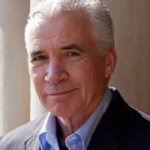 Martin L. Weitzman
Martin L. Weitzman
Martin L. Weitzman is Professor of Economics at Harvard University. Previously he was on the faculties of MIT and Yale. He has been elected as a fellow of the Econometric Society and the American Academy of Arts and Sciences. He has published widely in many leading economic journals and written three books. Weitzman’s interests in economics are broad and he has served as consultant for several well-known organizations. His current research is focused on environmental economics, including climate change, the economics of catastrophes, cost-benefit analysis, long-run discounting, green accounting, and comparison of alternative instruments for controlling pollution.
Don’t miss any update on our events
Sign up for free and access the latest events from our community.



